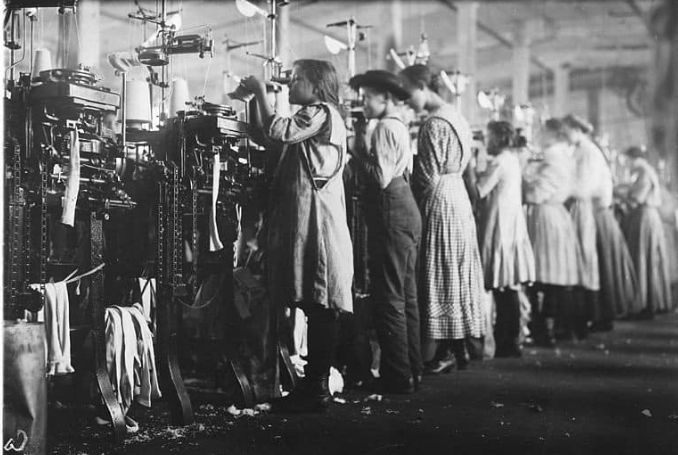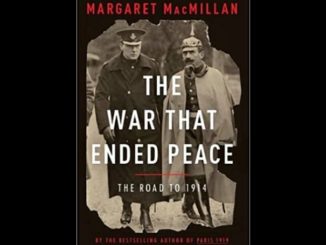
(Wealth and Power: Global Transformation and Destruction 1492 to 2020 Part 2: Transformation to Urban Industrial Capitalism and the path to Global War)
This is a history blog… Unlike any history you have been taught. The blog will set out to explain why the world we all live in, is as it is today. Sign in here and you receive a short weekly history on colonialism, racism, and very much more.
Introduction to Transformation
In these blogs, I want to introduce the concept of transformation. Understanding the dynamics of the transformation of society has been and remains a key movement of societies away from age-old practices and structures. Colonialism moved wealth from the colonized into the colonizing power’s banks. The new wealth helped finance the industrial revolution and the two together transformed society at every level. For millennia, human beings were primarily rural beings tilling the soil, or acting in some way connected to agriculture. For the first time in human history, urbanization grew in all industrializing societies and people’s lives and activities became separated from the land and producing food and clothing.
The transformation I discuss in the series of blogs in Wealth and Power: Global Transformation and Destruction 1492 to 2020 goes further than simply industrialization and urbanization. New social classes were created as new opportunities presented themselves to make money. A new wealthy and some not-so-wealthy middle class arose demanding political power, the consequences of which were revolution.
Industrial and urban transformation required new politics and not surprisingly turbulence resulted as the old attempted to maintain what they had had before.
Finally, I discuss social transformation. As new political classes arose, social norms changed as well. Many peoples are very aware of the new opportunities for women, for instance. Women even began to organize and demand rights which had previously been denied.
The transformation towards a new urban-industrial capitalism began to affect every aspect of living for peoples that were ascendant in Europe, in the new USA and Japan. The rest of the world’s people had to wait until the second half of the 20th century before they could even dream of industrial society for themselves.
In the next series of blogs, I examine transformation historically, which I hope will interest many peoples.
War Revolution and The Struggle for European Domination from 1750 to 1815
- The Revolution in France and the Revolutionary Wars
- The struggles for Colonial Dominance
- European Transformation
- The Révolution in Haiti
- Napoleonic Wars
- The first near Global war 1795 to 1815
- A note on 19th century racial ideas
War, revolution, Napoleon, and transformation was the stuff of the years from 1750 to 1815. I attempt to unravel this complexity in terms of transformation into industrial capitalist societies.
Starting in 1750 and following through to 1815, much of Europe was in constant war over these years. By 1815, the wars had been taken to Egypt and Russia had consumed the entire continent. The wars themselves were about a multitude of issues. They reflected the religious themes of the reformation, the conflict between France and Britain, the desire of the slaves for freedom from intolerable conditions, and of course the French Revolution for freedom from absolute monarchial power. The purpose of these blogs is to examine the consequences of this violence in the long-term development towards the urban industrial capitalist world we know today.
At one important level, colonialism altered the balance of wealth in France and was, therefore, a major player in the causes of the Revolution. And after it was all over, it had not been enough to finally destroy the vestiges of the old feudal order. It was though an important step in the direction that would be followed all over Europe as the 19th century progressed.
The Nineteenth Century:
These blogs will follow:
- Britain through the 19th century
- Industrialization
- Systemic technological change
- Transformation and the market;
- Examine the so-called free market system
- Finance banking and the gold standard
- A privatized national money market
- What I mean by ‘catching up’ or ‘falling behind’
At the core of Europe in the 19th century, we find industrialization, the new market system, organized banking, and a general understanding of the use of money.
The 19th century is widely considered as the century of industrialization. This the century when the new technologies took hold, societies became increasingly urbanized, banking became the key to the industrial base, and the system of free markets was introduced.
The nineteenth century was a period where Britain became the world’s first dominant power. There is therefore a huge volume of material available to students of economic history. Rather than attempt to replicate this body of work, I have followed through the argument that illustrates what happened when the feudal order had been sufficiently sidelined so that a new capitalist industrial order could take over.
Britain was the country in Europe that came out on top after the end of the Napoleonic era and was first off towards the industrial capitalist society. She not only maintained her colonial empire, while all the rest, namely France, Spain and Portugal lost some or all of their colonies. I follow from Karl Polanyi’s argument about the uniqueness of ‘the market system’ which allowed countless numbers of people to provide cheap urban labor with no social or economic supports of any kind. During this century, Britain became the world’s first dominant capitalist power and to achieve this, she revolutionized the global system of exchange.
During the 19th century, Britain developed national and international banking systems, created the Gold Exchange standard and created a global money market all based in London. All of this did nothing for the working classes who remain impoverished. She created a new ruling cadre of men in global finance, money and banking with all the surrounding infrastructure to support this which included specialized schools for the elite, a legal and political system and the surrounding industrialization.
Industrialization and the colonization of Asia after the 1760s created a threat to the world’s leaders as a whole. Only the Japanese were able to respond to that threat. I illustrate this by examining Japan’s Meiji revolution and comparing it with the Ottoman response in the mid 19th century.
Japan successfully industrialized, however, the Ottoman Empire tried but failed.
Japan and all the other non-colonized societies were threatened with colonization. Japan was the only non-colonized territory, non-European and ancient feudal society by the end of the 19th century to have made the transition towards an industrial capitalist and colonizing society. This represents a unique event in global history. At the same time, the Ottoman Empire also attempted the same feat but failed. Why? In the blogs, I examine the question of how this was possible.
1914: The Preparation for Global War
Who or what was responsible for the 14-18 war?
- The war happened by chance before it could be stopped.
- The German State
- 19th Century Geopolitics, Political Power, and Racial World Dominance
- The British State
By the end of the 19th century, all people in Western Europe or the USA fervently believed they were superior people. The richest and most powerful were thinking about world dominance.
The world wars that began in 1914 were the culmination of all the industrial, urban, scientific and political developments of the 100 years since 1815. The origins of the war reflected the constant competition among the most powerful states for colonies. No one doubts that the war itself was a truly terrible event, as millions of young men lost their lives. I pose the question of whether any people or nation were responsible, as book after book have also asked this same question. Much literature has gone into considerable detail and concluded that nobody or nation was finally responsible. There are a few outliers who disagree, and these books are largely ignored. In the blogs, I provide readers with the argument that nobody was at fault. It was the Germans who wished for a German ‘mitteleurope’, it was the British who wished to destroy Germany as an opponent and as an equal Great Power in the race to own colonies. I aim to allow readers to make up their minds.
– Dr. Roger Van Zwanenberg is the founder and chairman of the Pluto Educational Trust; a registered charity in the UK. He is also the Managing Director of Pluto Journals, a small company publishing 21 international scholarly journals. He contributed this article to The Palestine Chronicle.







